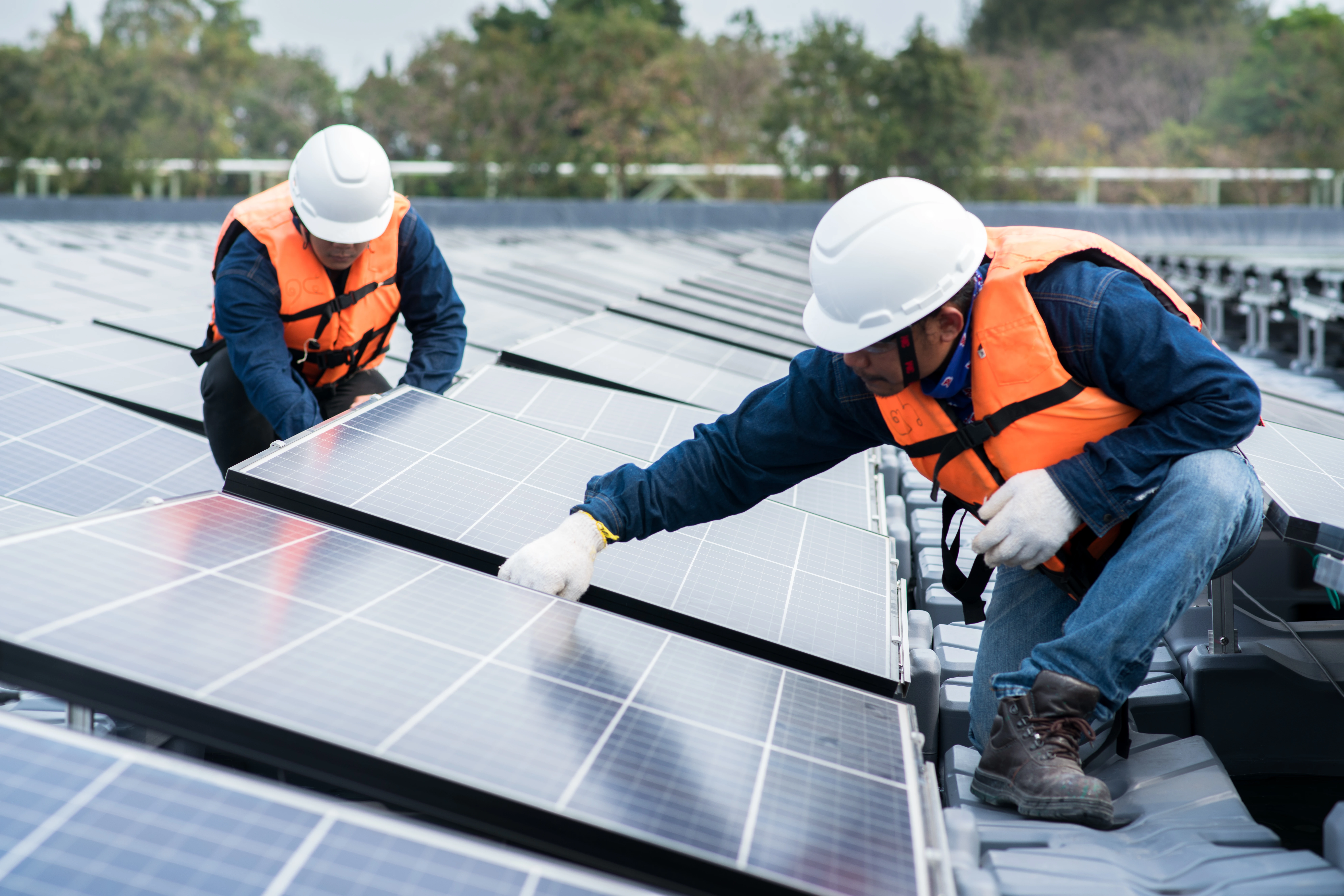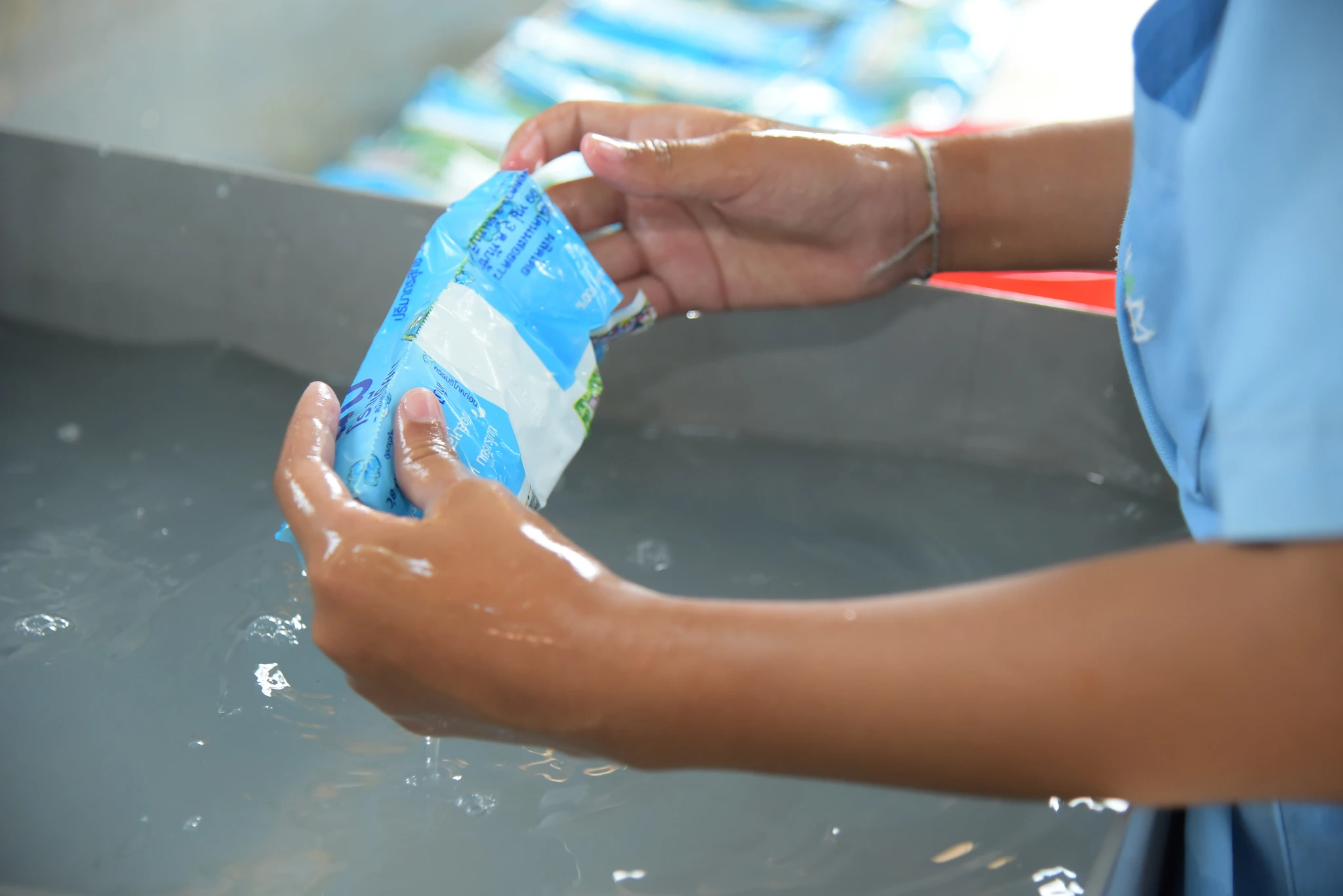#3 : Innovation and Development of Packaging
SCGC firmly believes that consuming high-quality food in green packaging that aligns with the world's sustainability trends will address food security and the efficient use of resources according to the circular economy principles. Therefore, leveraging expertise in Green Innovation, SCGC has elevated the standard of plastic packaging for food to be high-quality, clean, safe, and produced efficiently while reducing greenhouse gas emissions.
Recently, SCGC has entered into a joint venture agreement with Braskem, a global leader in bioplastics from Brazil, to establish a new company. Our goal is to produce 200,000 tons per year of green ethylene from agricultural ethanol, replacing fossil-derived ethylene with world-class technology. This green ethylene will be used to produce green polyethylene (Green-PE), which has a negative carbon footprint and can be recycled just like conventional polyethylene. This aligns with SCGC's ESG principles and Thailand's BCG (Bio-Circular-Green Economy) policy.
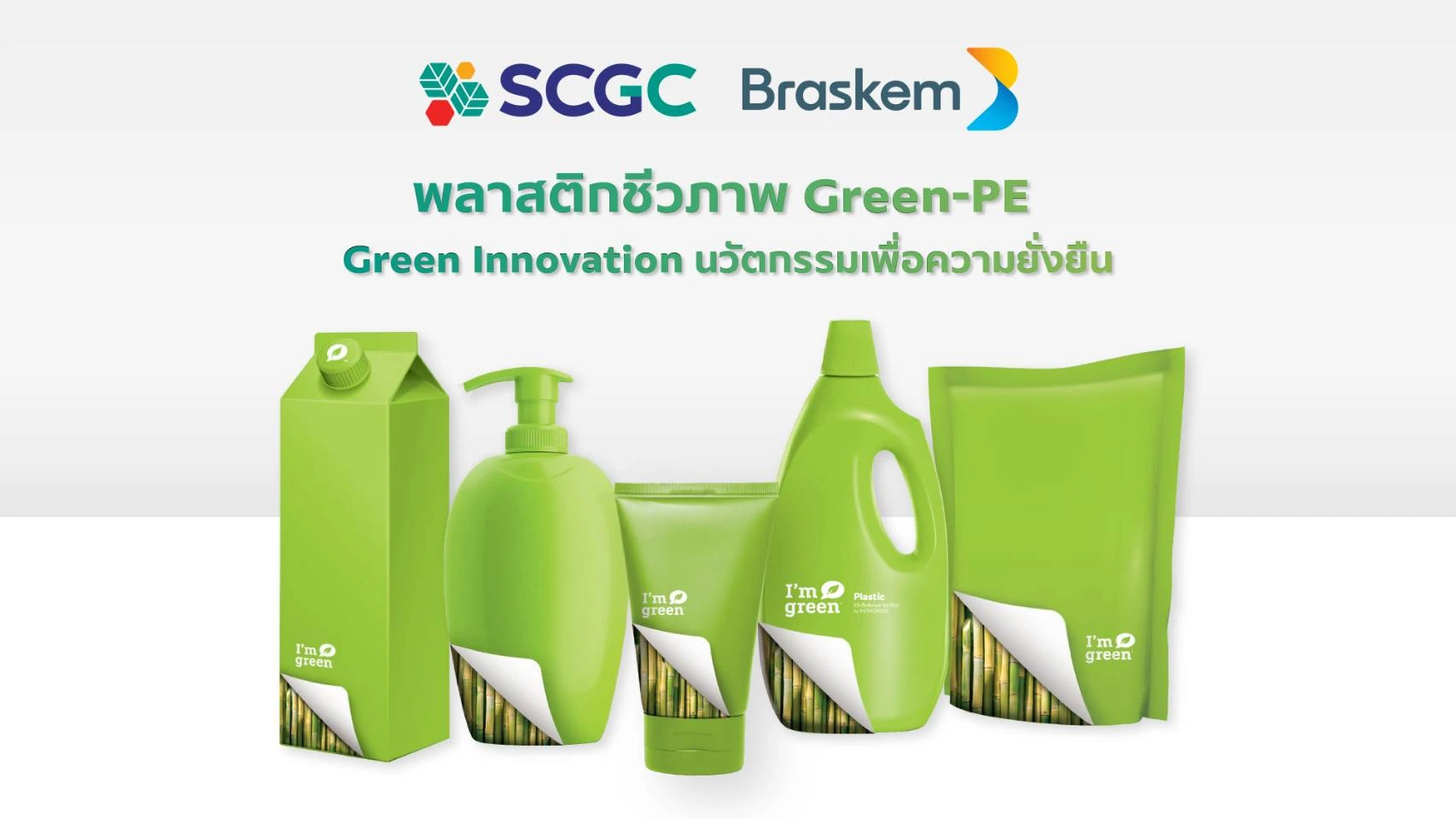
We have also partnered with Prepack and PFP to develop a new generation of recyclable packaging for frozen food. The innovation that meets these sustainability trends is the production of MDOPE film from SCGC™ HDPE H619F plastic resins, which results in a film with high heat resistance properties. It can be used as a printing layer, replacing the traditional Nylon Film (BOPA) material. This shift to flexible packaging with a mono-material structure allows for efficient recycling.
This new packaging, made entirely from polyethylene, can help reduce greenhouse gas emissions by more than 40%*.
#4 : Promotion of the Electric Vehicle Industry
SCGC has recognized the growth trend in the automotive business and thus has collaborated with partners to develop specialized plastic resins tailored for automotive applications. Each type boasts properties of durability, strength, and lighter weight.
We have developed the SCGC™ PP P765J plastic resins, which feature ultra-high impact resistance and high flow properties, high elongation, and ductility, making them suitable for producing automotive parts exposed to high impact, such as side door trims, front and rear bumpers, and instrumental panels. Even though these parts are used within the vehicle, safety during operation is assured, as these plastic resins have low levels of volatile organic compounds (Low VOCs) and are within safe health standards.
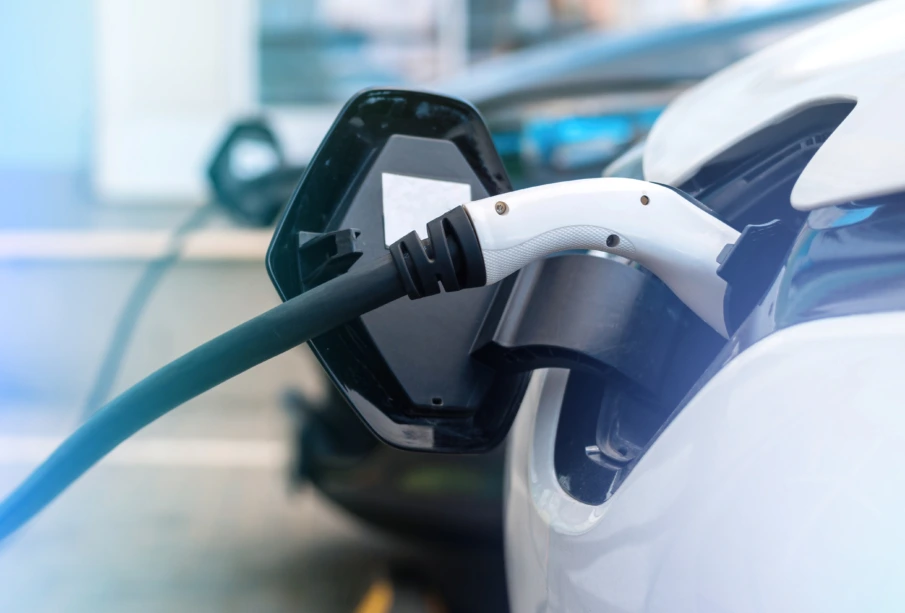
SCGC has also collaborated with partners to develop SCGC™ PP P1085J plastic resins with a significantly higher Melt Flow Rate. This allows for the creation of thinner and larger components while maintaining all other properties of the plastic resins. These resins result in parts that are approximately 0.5 millimeters thinner and reduce the weight of automotive plastic components by 10% compared to previous designs. Additionally, they help minimize the occurrence of defects during the injection molding process (Gate String), leading to high-quality components with reduced plastic usage, aligning with the circular economy principle by optimizing resource use.
Furthermore, SCGC has entered into a joint venture agreement with Denka Company Limited from Japan to produce and sell Acetylene Black in Rayong Province, with an expected production capacity of approximately 11,000 tons per year. The plant is projected to commence production by early 2025.
#5 : Restoration and Expansion of Green Spaces
In August 2022, SCGC initiated the "Plant-Cultivate-Protect: Plant Trees, Cultivate Seedlings, Protect the Forest, and Promote Low Carbon Society" campaign. This environmental project, aligned with the ESG (Environmental, Social, and Governance) goals, is designed to combat the global warming and climate change crisis and increase green spaces. Collaborating with the government, civil society, and other relevant sectors, including volunteer employees, the project aims to plant 1 million trees, encompassing mangrove reforestation and terrestrial forests, and provide saplings to needy areas. It also seeks to instill the notion of "forests taking care of people and people taking care of forests," contributing to the country's low-carbon society goals and a sustainable planet.
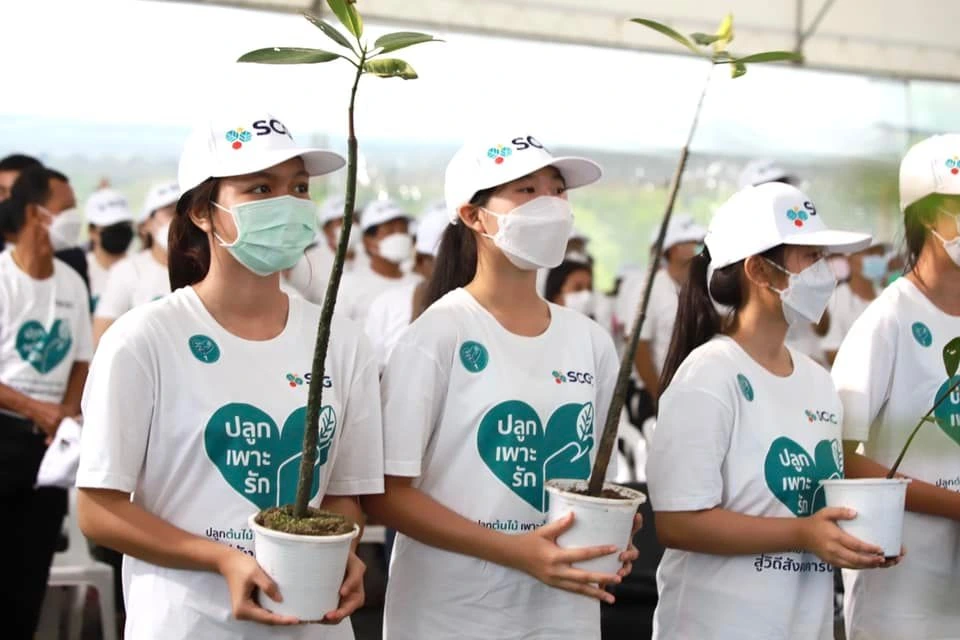
Additionally, SCGC has applied for advanced standard registration of the project as Premium T-VER with the Thailand Greenhouse Gas Management Organization (Public Organization) (TGO), which adheres to more stringent operational criteria and international standards. This includes a process that enhances stakeholder participation in problem-solving and agreement-making. It also involves assessments and safeguards to prevent any negative impacts (Do-no-net-harm) as per laws and regulations, ensuring the project does not adversely affect the stakeholders involved.
SCGC anticipates that the aforementioned project will be capable of reducing, sequestering, and absorbing approximately 6,500 tons of carbon dioxide equivalent per year by cultivating over 550,000 trees. In addition, there is ongoing research into the biodiversity of the areas to transform degraded forests into vibrant ecosystems enriched with plant species and living forms essential to the carbon cycle. This effort not only enhances the mangrove forests' capacity as carbon sinks, contributing to a low-carbon society in Thailand, but also promotes community livelihoods through potential income generation.
SCGC remains committed to innovating and developing chemical innovations that stimulate industrial growth, improve the quality of life for all in society, and align with global sustainability trends. Our innovations aim to mitigate the impact of climate change, resulting from global warming and global boiling.




